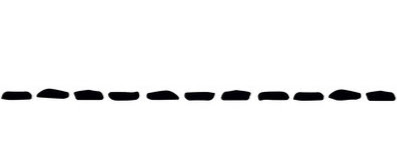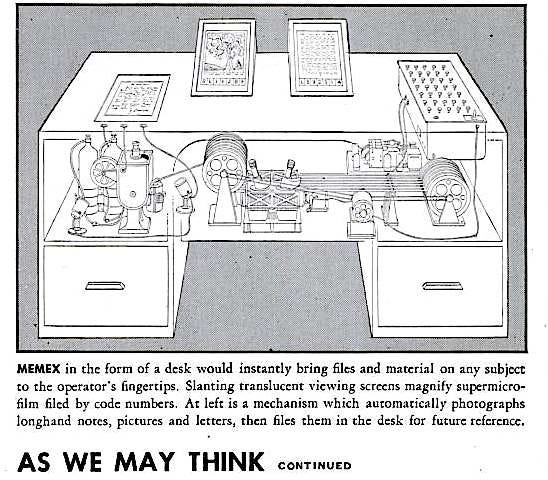Vannevar Bush:
Summarizing His Future

—an engineer and administrator who led the U.S. Office of Scientific Research and Development during World War II.
Now, for many, this war appears to be approaching an end
What are the scientists to do next?
. . .
The summation of human experience is being
expanded
at a prodigious rate,
and yet the means we use for threading through the consequent maze


to the momentarily important item is the same
as was used in the days of
square-rigged ships.
For a
record of knowledge
that evolves and endures
throughout the life of human race
,
to be useful to science,
it must be
continuously extended
,
it must be
stored
,
and above all it must be
consulted
.
Our ineptitude in getting at the record is largely caused by the
artificiality
of systems of indexing;
selection
by association, rather than indexing, is yet to be mechanized.
Consider:
a future device for individual use,
which is a sort of mechanized private file and library.
—thus science may implement the ways in which man
produces
,
stores
, and
consults
the record of the race.

Memex: Bush's imagined future machine to mechanize information
So,
What are the scientists to do next?



